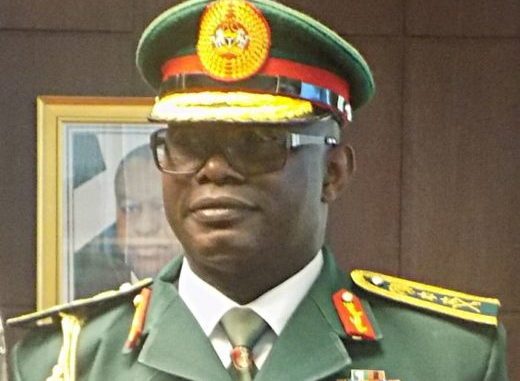
THE House of Representatives and the Armed Forces high command appear to have found a common ground on the country’s security challenges and how to combat them. By focusing however exclusively on the need for increased funding for the military, both sides gloss dangerously over the imperative of reforming the services, entrenching accountability and reorganising to meet current and emerging realities.
Every state-organised military continually bays for more funding; even the awesome United States armed forces defence budget of $693.05 billion for 2019 is still deemed inadequate by Pentagon brass. Nigeria’s military too, no doubt, since 1999, has become increasingly confronted with new challenges – from a record level of involvement in internal security operations to crime control, terrorism, banditry and unbroken confrontation with militants and pirates in the Niger Delta region and the coast. Add to this the underfunding of critical strike units over the years, obsolete equipment and a training gap, the request for ever more funding by service chiefs is understandable. The Nigerian Navy flagship, NNS Aradu, was commissioned in 1982, while the Nigeria Air Force’s once impressive fleet of C-130 Hercules transport aircraft has been depleted to only three operational ones today, according to Flight Global.
Uncritically, the House agreed when it met with service chiefs and said it would move for the creation of a special fund for the Armed Forces. The creation of any new special fund under whatever guise should be rejected outright. Nigeria’s record with special funds is putrid. Corruption, abuse, misapplication and outright embezzlement almost always follow. The Petroleum Equalisation Fund, Ecological Fund and the National Social Security Trust Fund are just a few of such serially abused funds, where corrupt bureaucracies and officials have created scandal after scandal. The Excess Crude Account that once had $23 billion was depleted to less than $400 million without ever achieving its noble goal of cushioning the effect of sustained oil price decline. The special draw-down of $2.1 billion in the last days of the Goodluck Jonathan administration, ostensibly to procure arms to dislodge terrorists occupying 27 local government areas in the North-East, ended up being used to buy votes for the ruling party in a sharing spree.
Funding the military should be effected through the normal budgetary process as it is done elsewhere. Two weeks on the job, United Kingdom’s short-lived Defence Secretary, Penelope Mordaunt, said she would be working to raise defence spending to meet NATO’s threshold of two per cent of GDP. Second, the House glossed over the issue of accountability of past and current funding of security operations. Elsewhere, parliaments demand accountability, especially when allegations or evidence of abuse of funds emerges. Some past NAF chiefs were put on trial for allegedly pocketing every month part of a monthly excess of N1.9 billion for “personnel costs.” The Nigerian Army has commenced the trial of a general whose ferrying of about N400 million cash became public when five escorting soldiers hijacked the shipment. There are allegations that land allotted for barracks and an airfield in the Federal Capital Territory was shared by some well-placed persons.
But in the US, the independent Inspector-General of the Department of Defence investigated the Overseas Contingency Operations account set up to fund activities in trouble spots and for which $16 billion was approved by Congress this year. But after allegations of its being used as a slush fund, it is to be phased out by 2024.
There is, thirdly, the need to reorganise and re-orient the military, including relieving them of engagement in routine law enforcement. There are also rumours, allegations, including reports by foreign news media, of diversion of funds on the field, under-equipping of our frontline troops, procurement scams and supply of substandard or unserviceable equipment. Neither the military nor the parliament has informed the public of any thorough investigation to determine the veracity of these allegations. Has the NAF’s N1.9 billion alleged monthly overpayment been stopped or the balance collected over the years recovered?
There is a need for strong internal and parliamentary oversight over the military, especially in a democracy. It is accepted that a military that is always subordinate to civilian leadership is a major tenet of a stable democracy. So strong is this principle that in the US, it is Congress that signs off on all major expenditure plans of the military. For instance, a long-standing plan by the US Air Force to retire its 280-strong fleet of the A-10 Thunderbolt Close Air Support aircraft has been dropped in the face of Congressional push-back.
Moreover, in response to emerging threats and expected challenges, countries have been reforming their military. Russia has been doing this as it emerges from the post-communist collapse and retakes centre stage in global affairs. China is rebuilding its military to a formidable force to keep pace with its emergence as an economic superpower, while Japan, organised mainly for self-defence since the end of World War II, is also remaking its military with an eye on possible threats from a resurgent China and isolationism by the US, which hitherto guaranteed its defence. Chad, with help from France and the US, is regarded as one of Africa’s most capable military forces as it responds to fend off insurgents, terrorists and rebels dispersed by the collapse of Libya.
Still reckoned by Global Firepower as Africa’s fourth strongest military – after Egypt, Algeria and South Africa – Nigeria’s Armed Forces can still hold their own; but there is a need for radical reforms, strong civilian and parliamentary oversight and withdrawal from routine crime control to focus on their core mandate. A military whose bases are sometimes overrun by insurgents, its personnel engage in extortion, brutal attacks on civilians and is saddled with inadequate or obsolete equipment needs a thorough overhaul with funding as just one component.
END

Be the first to comment